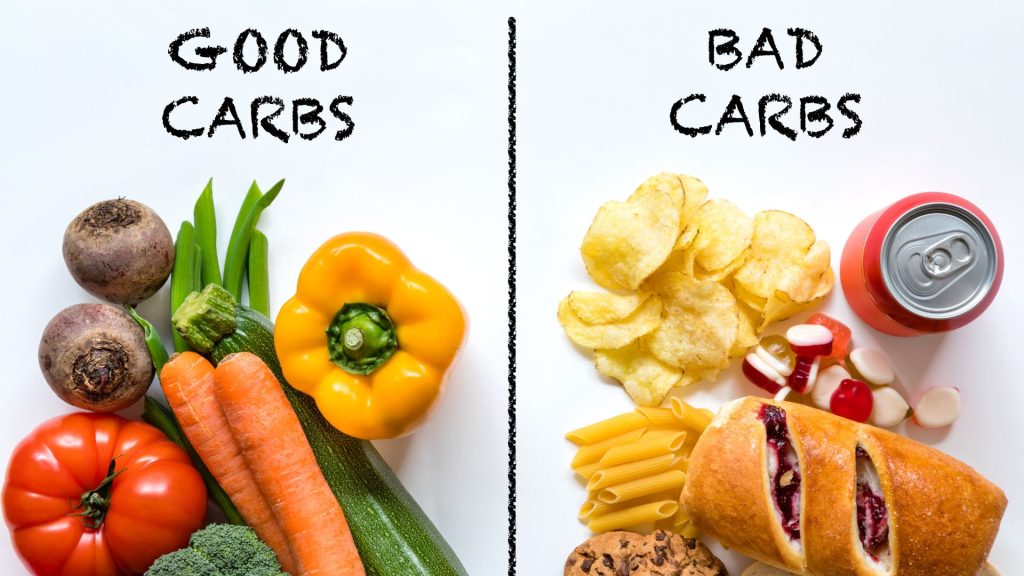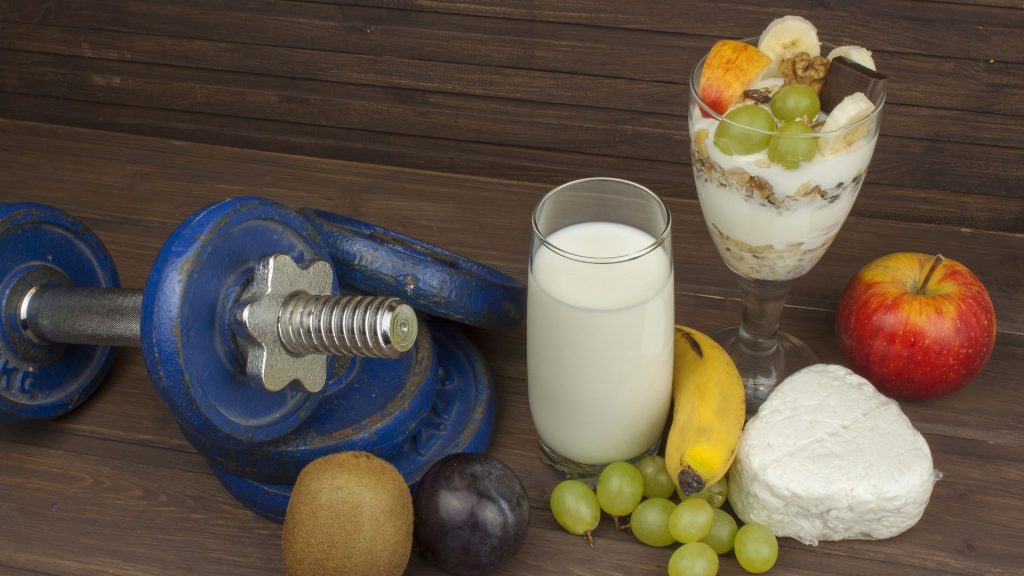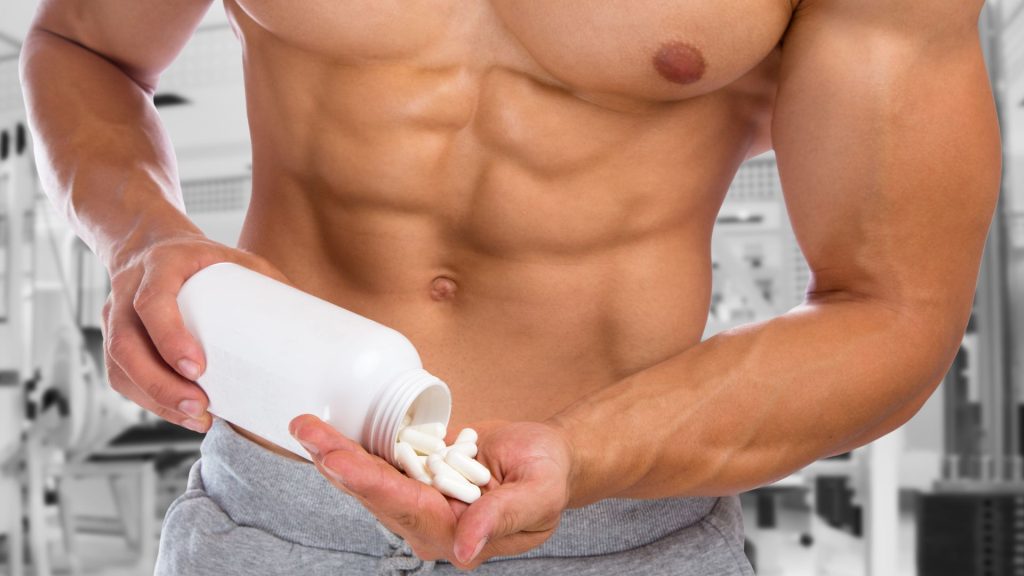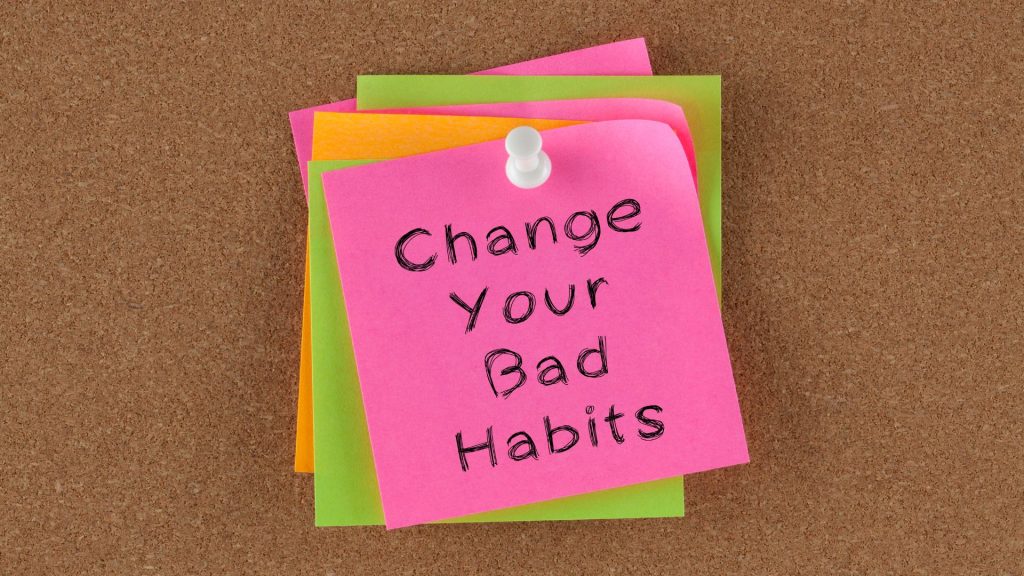Introduction: Fueling Your Performance for Victory
Imagine yourself on the field, the clock ticking down, your muscles screaming for energy. Every step, every swing, every push requires your body to fire on all cylinders. But are you giving it the fuel it needs to perform at its peak?
For athletes, proper nutrition is more than just avoiding greasy burgers. It’s the foundation for peak performance, recovery, and injury prevention. Yet, the world of sports nutrition is often riddled with myths and misconceptions. Have you heard that carbs are the enemy, or that protein shakes are the key to unlocking your inner champion?
This article dives deep into the world of sports nutrition, debunking some of the most common myths that can hold athletes back. We’ll separate fact from fiction, and empower you to make informed choices about the fuel you put into your body. By the end, you’ll be equipped with the knowledge to create a personalized nutrition strategy that propels you towards victory.
Myth #1: Carbs are the Enemy

Carbs. The very word seems to strike fear into the hearts of some athletes, conjuring images of weight gain and sluggish performance. But the truth is, carbohydrates are essential for anyone pushing their body to the limits. They are the primary source of energy for your muscles, providing the fuel they need to contract and generate power.
Imagine your body as a car. Gasoline is the fuel that keeps it running, and carbohydrates are your athletic equivalent. Without a steady supply of carbs, your engine starts to sputter. You experience fatigue, decreased performance, and difficulty maintaining intensity during workouts and competitions.
However, the myth doesn’t stop there. Many believe that carb-loading is a necessary ritual before every event. This practice involves consuming large amounts of carbohydrates in the days leading up to a competition, with the goal of maximizing stored glycogen (the body’s storage form of carbohydrates) in the muscles.
While carb-loading can be beneficial for endurance athletes participating in events lasting longer than 90 minutes, it’s not a one-size-fits-all strategy. For most athletes, a balanced diet with a moderate intake of complex carbohydrates throughout the day is sufficient.
Here’s where things get interesting:
All Carbs Are Created Equal (They’re Not!)
Not all carbohydrates are created equal. Simple carbohydrates, found in sugary drinks, pastries, and white bread, provide a quick burst of energy followed by a sharp crash. This can leave you feeling sluggish and hinder your ability to maintain sustained effort.

Complex carbohydrates, on the other hand, are the champions of sustained energy release. Think whole grains, brown rice, quinoa, sweet potatoes, and fruits. These sources provide a slow and steady stream of glucose to your bloodstream, keeping you fueled throughout your workout or competition.
So, the next time you reach for a snack, ditch the sugary donut and grab a piece of fruit or a slice of whole-grain toast. Your body (and your performance) will thank you for it.
Myth #2: Protein is the Magic Muscle-Building Bullet
Protein. It’s the word plastered across every bodybuilding supplement and protein bar on the market. There’s no doubt that protein plays a crucial role in muscle growth and repair. It’s the building block for your muscles, providing the amino acids they need to recover from exercise and build new tissue.

However, many athletes fall prey to the myth that more protein equals more muscle. They believe they need to consume an excessive amount of protein, often exceeding their body’s needs, in a desperate attempt to sculpt their dream physique.
The truth is, there’s such a thing as too much of a good thing. While protein is essential, consuming excessive amounts can put a strain on your kidneys and lead to dehydration.
The key lies in understanding the concept of optimal protein intake. This is the amount of protein your body can effectively utilize for muscle protein synthesis (building muscle). The exact amount varies depending on several factors, including your activity level, body weight, and training goals.
For most athletes, the recommended daily intake of protein falls between 1.2-2 grams per kilogram of body weight. So, a 70kg athlete would need roughly 84-140 grams of protein per day. This can be easily achieved through a balanced diet rich in lean protein sources like chicken, fish, legumes, and dairy products.
Here’s another myth buster related to protein:
Myth #3: The Anabolic Window: A Race Against Time?

You might have heard about the anabolic window, a short window of opportunity after exercise where your body is supposedly primed to absorb protein for muscle growth. This concept has been widely perpetuated in the fitness world, creating a sense of urgency around post-workout protein consumption.
The good news? The anabolic window isn’t as narrow as some believe. Research suggests it can last anywhere from 2-4 hours after exercise. This gives you ample time to consume a protein-rich meal or snack without compromising your muscle-building potential.
The bigger emphasis should be on overall daily protein intake rather than obsessing over the exact timing of your post-workout meal. Aim to distribute your protein intake throughout the day, including a moderate amount after your workout to support muscle recovery and growth.
Myth #4: Sports Drinks are Always the Answer

Step onto any field or court, and you’re likely to see athletes gulping down brightly colored sports drinks. These beverages are marketed as the ultimate weapon for hydration and performance, but are they truly necessary for every workout?
Sports drinks have their place. They can be beneficial for athletes participating in intense exercise lasting longer than an hour, especially in hot and humid environments. These conditions lead to significant fluid and electrolyte loss through sweat. Electrolytes, like sodium and potassium, are minerals that help regulate muscle function and fluid balance.
However, for most low-intensity workouts or those lasting less than an hour, plain water is all you need. Water is the most effective way to stay hydrated and maintain optimal performance.
Here’s when sports drinks might be a good call:
When Sports Drinks Might Be Beneficial
- High-intensity exercise: Workouts exceeding an hour, particularly those involving explosive movements like interval training or team sports, can lead to significant electrolyte loss. Sports drinks can help replenish these electrolytes and maintain proper muscle function.
- Hot and humid conditions: Sweating becomes more profuse in hot weather, increasing electrolyte loss. Sports drinks can help replace these lost electrolytes and prevent dehydration.
- Long-distance events: Marathon runners, cyclists, and endurance athletes may benefit from the additional carbohydrates and electrolytes provided by sports drinks during extended periods of exercise.
Remember, the key is to tailor your hydration strategy to the specific demands of your activity and environment.
Myth #5: Fasting Workouts Burn More Fat

The idea of burning more fat by exercising on an empty stomach is a tempting one, especially for athletes striving to shed weight. However, this myth ignores the body’s complex fuel sources and the potential downsides of fasted workouts.
During exercise, your body primarily relies on two sources of energy: carbohydrates and fat. When you haven’t eaten in a while, your glycogen stores (carbohydrates) are depleted. This forces your body to tap into fat stores for fuel at a faster rate.
Sounds good, right? Not quite. While fasted workouts may lead to a slightly higher percentage of fat being used for fuel, the overall calorie expenditure is likely to be lower. This is because your body is less efficient at utilizing fat for energy compared to carbohydrates.
Furthermore, fasted workouts can come with several drawbacks:
- Decreased performance: Your body needs readily available carbohydrates for high-intensity exercise. Without them, you may experience fatigue, decreased power output, and difficulty maintaining intensity.
- Muscle breakdown: In extreme cases, prolonged fasted workouts can lead to the breakdown of muscle tissue for energy, hindering muscle growth and recovery.
- Increased risk of injury: Fatigue and decreased coordination associated with fasted workouts can increase the risk of injuries.
So, while fasted workouts may have a slight fat-burning edge, the trade-off in terms of performance and potential health risks makes them a questionable strategy for most athletes.
Myth #6: You Can Out-Train a Bad Diet

Imagine this scenario: you hit the gym every day, pushing yourself to the limit. But despite your dedication, you see minimal results. The culprit? A poor diet.
Training and nutrition are two sides of the same coin when it comes to athletic performance. You can’t out-train a bad diet. Here’s why:
- Fueling Your Workouts: Exercise requires energy. A balanced diet rich in carbohydrates, protein, and healthy fats provides the essential fuel your body needs to perform at its best. A poor diet leaves you running on fumes, hindering your ability to train intensely and recover effectively.
- Muscle Recovery and Growth: Proper nutrition plays a crucial role in muscle repair and growth after exercise. Protein is the building block of muscle tissue, and other nutrients like vitamins and minerals are essential for optimal muscle function and recovery. A poor diet can slow down this process, limiting your progress.
- Overall Health and Performance: A balanced diet supports your overall health, which directly impacts your athletic performance. It strengthens your immune system, improves energy levels, and helps you maintain a healthy weight. A poor diet can lead to fatigue, increased risk of illness, and hinder your ability to train consistently.
Think of your body as a high-performance car. You wouldn’t expect it to run optimally on low-quality fuel, would you? The same applies to your body. By prioritizing a balanced and nutritious diet, you’re providing it with the fuel it needs to perform at its peak and reach your full athletic potential.
Myth #7: Supplements are a Shortcut to Success
The supplement industry thrives on the promise of a quick fix for athletic performance. Protein powders, pre-workout formulas, and an array of other supplements are marketed as magic bullets for building muscle, boosting energy, and achieving peak performance.

While certain supplements can offer specific benefits for some athletes, they are not a shortcut to success. Here’s why:
- Individual Needs: An athlete’s nutritional needs vary based on factors like activity type, training intensity, and body composition. A personalized nutrition plan that prioritizes whole foods should be the foundation for any athlete’s diet. Supplements can then be used to address specific gaps or deficiencies.
- Limited Evidence: The effectiveness of many supplements for enhancing athletic performance lacks strong scientific evidence. Athletes should be wary of claims that seem too good to be true and conduct research before investing in expensive supplements.
- Potential Side Effects: Some supplements can have negative side effects, particularly if taken in excessive amounts or without proper guidance. It’s crucial to consult with a healthcare professional or registered dietitian before starting any new supplement regimen.
The best approach is to focus on a balanced diet that provides your body with the essential nutrients it needs to perform optimally. Supplements can be a valuable tool, but only when used strategically to address specific deficiencies identified by a qualified professional.
Myth #8: There’s a “One-Size-Fits-All” Approach
The world of athletics is diverse, encompassing a wide range of activities, body types, and individual goals. What works for a marathon runner might not be optimal for a powerlifter, and a soccer player’s nutritional needs will differ from a gymnast’s.
The myth of a one-size-fits-all approach to sports nutrition ignores these crucial individual differences. Here’s why personalization matters:
- Activity Type: Different activities have varying demands on your body. Endurance athletes require a focus on carbohydrates, while power athletes need a balance of carbs and protein to support muscle growth and strength development. Tailoring your macronutrient intake to your specific activity optimizes performance.
- Body Composition: Bodyweight, muscle mass, and body fat percentage all influence your nutritional needs. A lean athlete will have different calorie and protein requirements compared to a heavier athlete with a higher body fat percentage.
- Goals: Are you aiming to build muscle, lose weight, or improve endurance? Your specific goals will influence the composition and overall calorie intake of your diet.
By personalizing your nutrition strategy, you ensure you’re providing your body with the targeted nutrients it needs to achieve your unique athletic goals.
The Role of Sports Nutritionists:
Sports nutritionists are valuable resources for athletes seeking to optimize their performance through personalized nutrition plans. They can assess your individual needs, develop a tailored diet, and provide ongoing guidance and support to help you reach your full potential.
Conclusion:
We’ve debunked eight common myths surrounding sports nutrition, empowering you to make informed choices about the fuel you put into your body. Remember, a balanced and personalized approach is key to unlocking your peak performance. By prioritizing whole foods, tailoring your diet to your specific needs and goals, and consulting with a qualified professional if needed, you can give your body the optimal nutrition it craves to dominate your chosen sport.
FAQs
Here are some frequently asked questions regarding sports nutrition to solidify your understanding:
FAQ 1: What are some good sources of carbohydrates for athletes?
Athletes should focus on complex carbohydrates that provide sustained energy. Excellent choices include:
- Whole grains: Brown rice, quinoa, oats, whole-wheat bread and pasta
- Starchy vegetables: Sweet potatoes, corn, peas
- Fruits: Bananas, berries, apples, oranges
FAQ 2: How much protein do I really need as an athlete?
The recommended daily protein intake for athletes typically ranges from 1.2-2 grams per kilogram of body weight. However, this can vary depending on factors like activity level, training intensity, and goals. Consulting a sports nutritionist can help determine your optimal protein needs.
FAQ 3: When should I eat after a workout?
Aim to consume a protein-rich meal or snack within 2-4 hours after your workout to optimize muscle recovery and growth. Examples include grilled chicken with brown rice and vegetables, Greek yogurt with fruit and granola, or a protein shake.
FAQ 4: Are there any situations where sports drinks are not necessary?
Yes, for low-intensity workouts lasting less than an hour, plain water is sufficient for hydration. Additionally, if you’re sweating moderately and not training in hot, humid conditions, water may be all you need.
FAQ 5: Should I consider consulting a sports nutritionist?
Absolutely! Sports nutritionists are experts in crafting personalized nutrition plans to optimize athletic performance. They can help you achieve your goals, whether it’s building muscle, improving endurance, or losing weight in a healthy way. The ISST (Institute of Sports Science and Technology) offers a Distance Diploma in Sports and Exercise Nutrition (DDSEN) program that equips individuals with the knowledge and skills to become qualified sports nutritionists. This program can be a valuable resource for athletes seeking to elevate their performance through proper nutrition.
Remember, proper nutrition is a cornerstone of athletic success. By debunking these common myths and prioritizing a healthy, personalized approach to your diet, you can fuel your body for victory and reach your full athletic potential.












